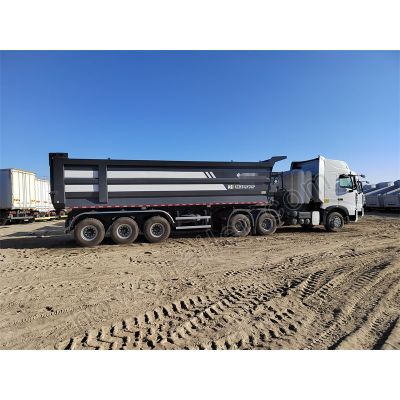Air suspension is a popular upgrade for vehicles that want to achieve a smoother and more comfortable ride. Unlike traditional suspension systems, air suspension relies on air-filled bags or bellows to provide support and absorb shock. In this article, we will delve into how air suspension works and explore its benefits for vehicles.
How Does Air Suspension Work?
Air suspension systems consist of several components, including air springs, air compressors, control valves, and electronic sensors. These components work together to adjust the vehicle's height and absorb shocks.
Air springs, also known as airbags, are the primary components of air suspension systems. These air-filled bags or bellows replace traditional metal springs and provide support for the vehicle's weight. Air springs are made of durable materials such as rubber and reinforced with fabric to withstand the pressure of the air inside.
Air compressors are used to inflate the air springs to the desired pressure. Control valves regulate the flow of air into and out of the air springs, ensuring that the vehicle's ride height remains stable. Electronic sensors monitor the vehicle's height and adjust the air pressure in the air springs accordingly.
Benefits of Air Suspension for Vehicles
Improved Ride Comfort
Air suspension systems provide a smoother and more comfortable ride compared to traditional suspension systems. The air springs absorb shocks better and can be adjusted to provide a softer or firmer ride depending on the driver's preference.
Featured content:The Power of LNG Semi-Trailers: Unlocking a Cleaner Future for TransportationSide Wall Trailer: A Comprehensive Guide to its Features and BenefitsWhy do people like campers?How many axles are on a trailer?Why do people like Travel campers?How to Choose the Right Powder Tanker for Your BusinessHow Can I Tell if My Axle Is Broken?
Better Towing and Hauling Capability
Air suspension systems can improve a vehicle's towing and hauling capability by providing additional support for heavy loads. The air springs can be adjusted to compensate for the extra weight and maintain a level ride height.
Enhanced Off-Road Performance
Air suspension systems can also enhance a vehicle's off-road performance by allowing the driver to adjust the ride height to clear obstacles or provide additional ground clearance. This feature is particularly useful for vehicles used for off-road adventures or exploration.
Increased Fuel Efficiency
Air suspension systems can help improve a vehicle's fuel efficiency by reducing drag and improving aerodynamics. When the vehicle is lowered, it reduces the air resistance, which in turn improves the vehicle's fuel efficiency.
Conclusion
Air suspension systems offer several benefits for vehicles, including improved ride comfort, better towing and hauling capability, enhanced off-road performance, and increased fuel efficiency. As such, they have become a popular upgrade for many vehicles, including trucks, SUVs, and luxury cars. If you are considering upgrading your vehicle's suspension system, air suspension is definitely worth considering.
Featured content:Difference Between Off road and Semi Off Road CaravansHow fast can an electric scooter go?What is a tipper used for?5 Tips for Choosing the Best Electric MotorcycleDifferences Between Lowboy and RGN TrailersWhat is a bulk cement tanker trailer?All you need to know about a mini-caravan






Comments
Please Join Us to post.
0